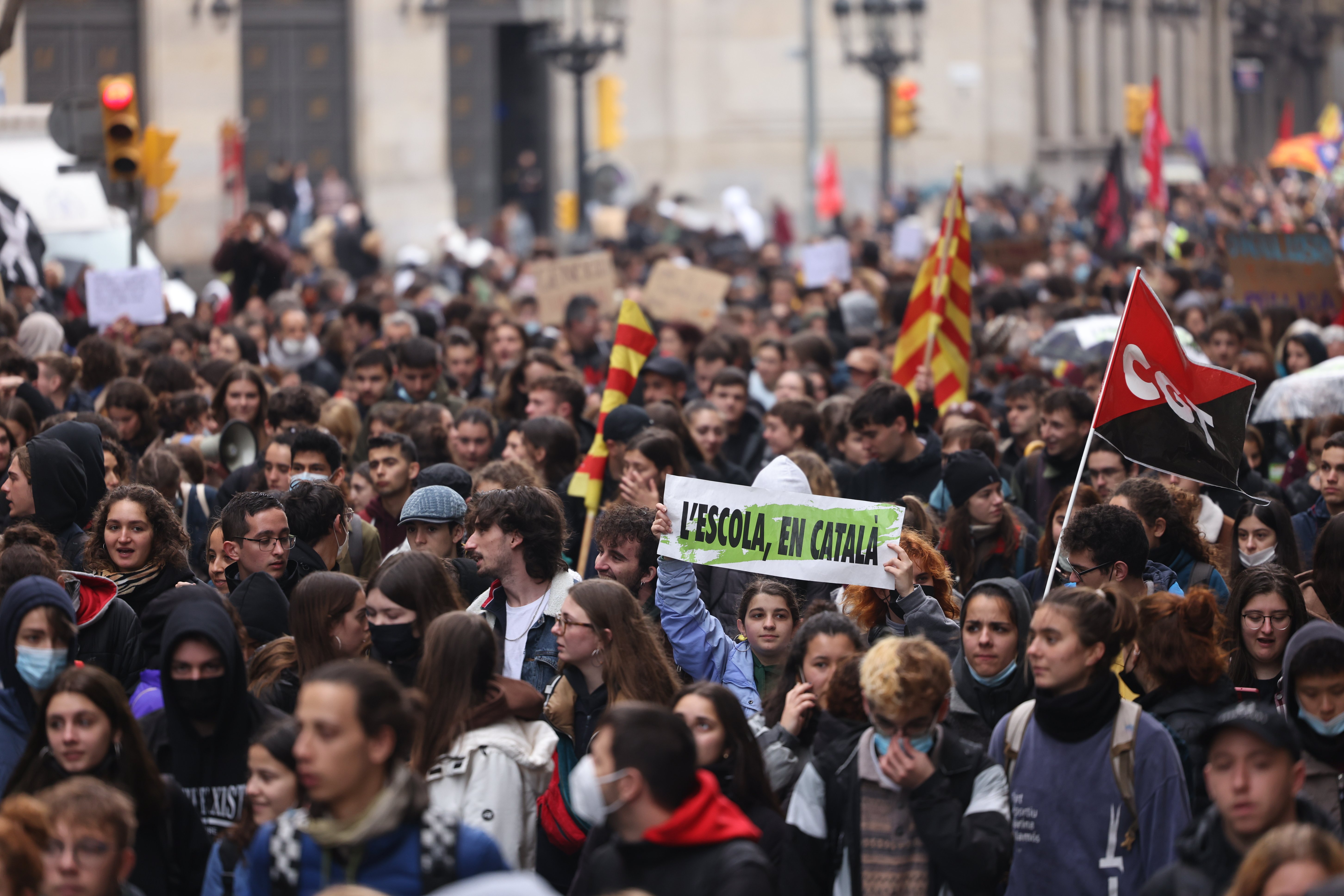A new judicial front has been opened against the Catalan government over the protection of the Catalan language in schools. An administrative disputes chamber of the High Court of Catalonia (TSJC) has agreed to present a question of unconstitutionality to Spain's Constitutional Court over the two language norms adopted by the Generalitat this year in response to the 25% Spanish quota decision by the High Court: decree law 6/22, which sets the criteria relating to the language plans adopted by schools, approved by the Catalan government in May; and also, law 8/22, on the use and learning of the official languages in non-university education, passed by the Catalan Parliament in June. The TSJC judges argue that the Spanish language is not treated in these pieces of legislation as official.
The TSJC takes this decision after earlier suspending the execution of its sentence requiring all educational centres in Catalonia to give 25% of classes in Spanish, admitting that the new Catalan regulations cancelled out the resolution. But in a resolution communicated this Thursday, the court accuses the Catalan government and Parliament of "blocking" the execution of its sentence, with the two new norms, which it now considers unconstitutional.
This resolution comes just one day after the meeting of the dialogue table between Spanish and Catalan governments, where it was assured that the central executive would defend the use of Catalan and other co-official languages - such as Basque and Galician - in the Senate, as well as in Catalonia's recent educational reform. The meeting's other main accord was a commitment to work towards the end of the judicialization of the political conflict over Catalonia.
The court accuses the Catalan government of a legal fraud
In its resolution, the TSJC consults the Constitutional Court on whether these two norms which were passed to avoid the application of the 25% Spanish ruling, infringe article 3 of the Spanish Constitution, also in relation with three articles of the Statute of Autonomy of Catalonia, "in terms of - indicates the court - the official nature of Spanish and its use as a teaching language".
The court affirms that the new regulatory framework created in Catalonia prevents the application of the sentence it issued in 2020, recalling that it was the Spanish state solicitors that pushed for Spanish to be the vehicular language in all centres, while that until then the TSJC had resolved only specific cases involving families and schools. It assures that its ruling in which it imposes the hitherto non-existent percentage of 25% of Spanish in the school curriculum was based on verifying that it was not sufficiently represented.
Now, the court maintains that "the new regulatory framework does not appear to be compatible with the Constitution, since as expressed in constitutional court ruling STC 31/2010, it is constitutionally required that the two co-official languages be recognized by the competent public authorities as vehicular".
In the argumentation, the court explains that the new Catalan norms, Decree Law 6/22 and Law 8/22, regulate the consideration and use that both official languages have in the educational system. It states, however, that "this joint regulation closes the way to an interpretation only if it allows the status of Spanish to be restored as the vehicular language of education without directly violating the legal norms", and adds: "In other words, in the judgment of this court, the model that both laws introduce does not allow the position of Spanish to be restored in parallel with that of Catalan without incurring in a legal fraud.”
The court assures that "the will of the Catalan government and Parliament is unequivocal in that the purpose of the two rules is to block the application of the sentence, and with it, the guarantee of the use of Spanish in teaching in constitutionally acceptable terms" .
Prosecutors and state solicitors agree
The TSJC asked for the opinion on this matter from the parties involved in the execution of the 25% Spanish ruling, and included the public prosecutors. The court affirms that the prosecutors have reported that "the formal requirements to present the proposed unconstitutionality question are met". And the state solicitors concur.
In addition, the Assembly for a Bilingual School, the group which requested the execution of the sentence of 25% Spanish, against the opinion of the state solicitors, as well as the other Spanish organizations admitted as parties in the decision on executing the ruling, such as Hablemos Español, also state that it is necessary to take the new Catalan norms to the Constitutional Court.
The Catalan High Court's argument concludes that the jurisprudence of the Constitutional Court establishes that both Catalan and Spanish are official languages and therefore the law imposes "their normal use by public administrations without establishing a preference in favour of one language".

